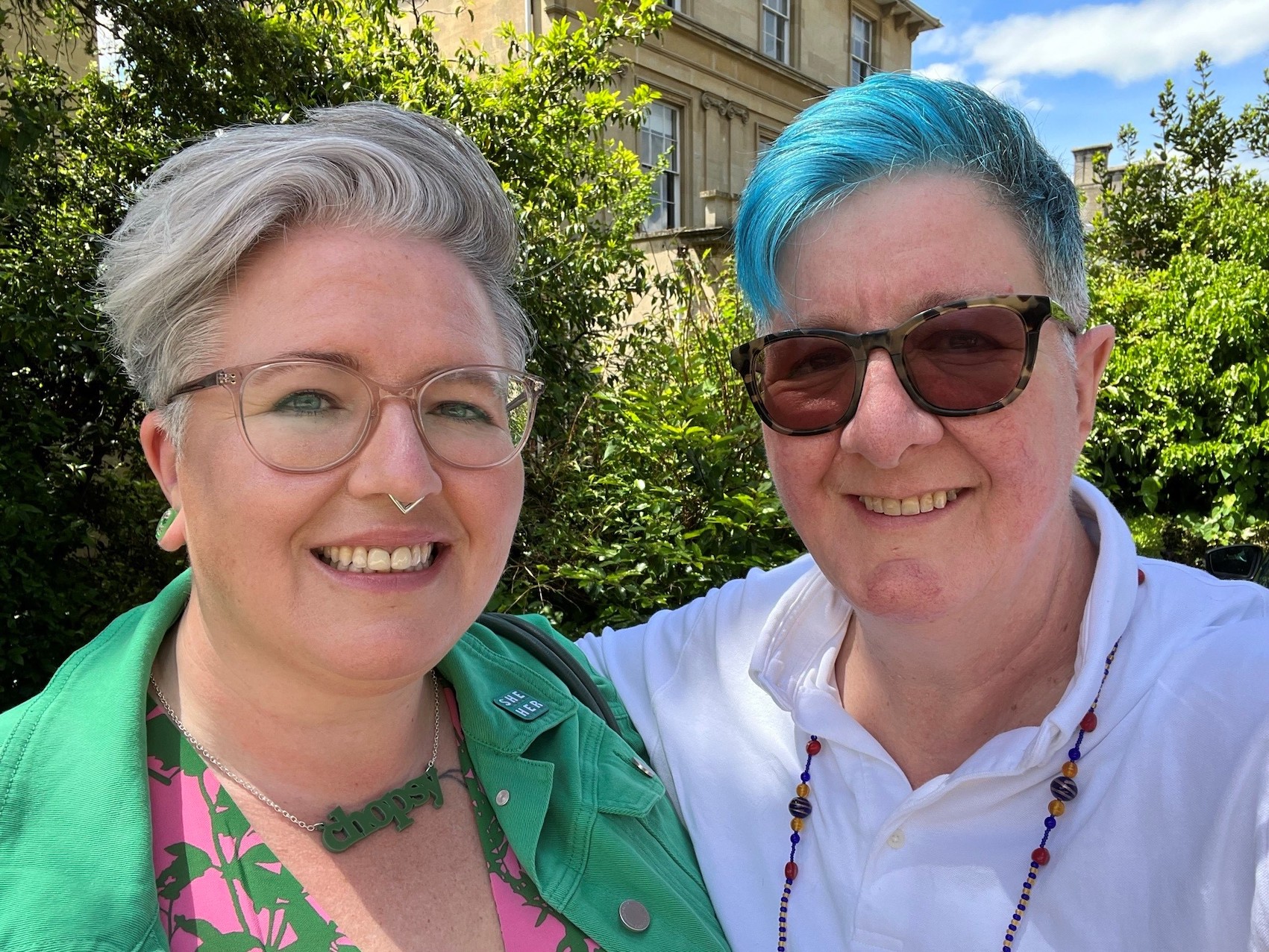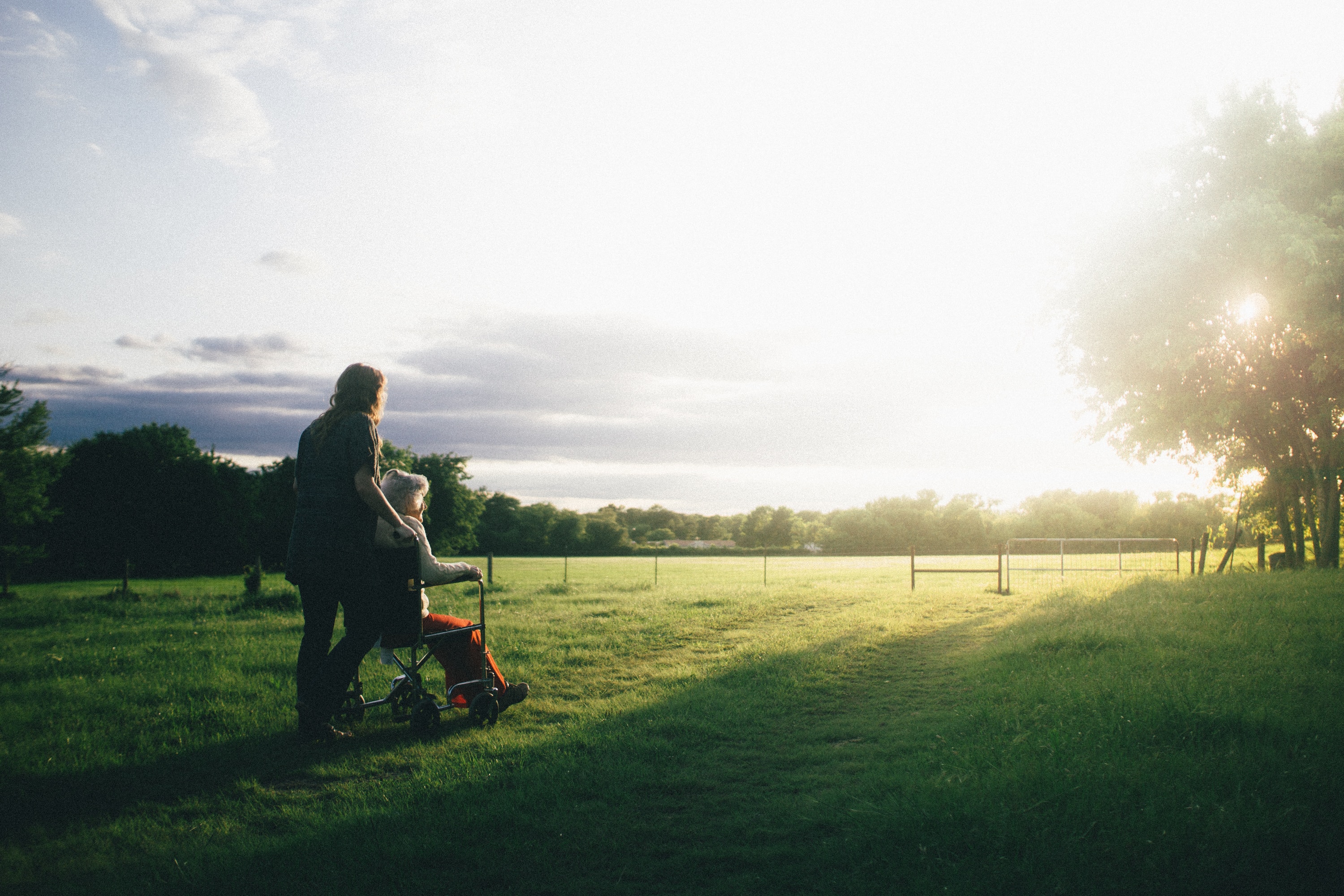Foster care in crisis: Government allowance is no longer enough to raise a child
With 20% of fostering families leaving the system every year, why are Black and LGBTQ+ families still being deterred from becoming carers?
As a gay woman, 59-year-old Sarah Jones always knew it would be trickier to have a family, despite both she and her partner wanting children. Jones is based in Swansea, Wales, where local councils are currently trying to boost the number of foster carers amid a stark and worrying drop. Jones and her partner have been foster carers for almost nine years.
“Our attempts at pregnancy were unsuccessful unfortunately, but our experience of fostering has been really good,” she explains.
Initially, the couple fostered a young person on a short-term basis of three months, and then went on to look after a boy who, now 17, has been in their care for eight years. “They came to us first when they were eight years old. It has been lovely and allowed us to do deep work with them. This has really helped them blossom into the young man they are today,” she says. Jones loves that as a foster carer you get to help a young person become a fully functioning adult in an incredibly challenging world: “You’re equipping them not just with survival skills, but with emotional skills and resilience which will help them hopefully succeed in life.”
But as things stand, fewer and fewer children will be able to benefit from such guidance and support in coming years - as decades of underfunding and the ongoing cost of living crisis are hitting the foster sector head-on. In spring 2022, FosterTalk - the leading support service for foster carers - questioned 4,349 foster carers from across the United Kingdom as part of its cost of living survey. Ruth Willetts, FosterTalk’s head of social work and development, says the findings were “quite worrying”.
“A large proportion of foster carers said they were really re-considering fostering and might leave the sector within two years, because they can’t financially cope.” She adds: “It’s worse now than it’s ever been.”
In 2021, The Social Market Foundations report found that the number of children requiring foster care could rise by 33% by 2030, but poor retention of foster carers means that around 20% of fostering households leave the system every year. The number of applications received from prospective fostering households in 2022 to 2023 was around 8,000, which is the lowest number in several years.
The skyrocketing cost of fostering
All foster carers receive an allowance to cover the cost of caring for a child, which in England is usually a minimum of between £137 and £240 a week. However, for the financial year 2023/4, The Fostering Network calculated it would cost between £227 and £349 a week to care for a child. For many, the allowance is no longer enough.
Last year, FosterTalk set up a petition to improve foster care allowances. The matter was debated in the House of Commons in January, although in December last year the government announced an uplift of 6.88% to the national minimum allowance for foster carers in England, after The Fostering Network campaigned on the issue, which will come into effect from the next financial year. While this was welcome news, and goes beyond the current rate of inflation, The Fostering Network believes it still does not go far enough.
The foster care allowance covers the cost of caring for a child, which includes food, clothing, utilities, transport, pocket money, outings, activities and more. (Independent fostering agencies offer higher fostering allowances than local authorities.)
Below is a rough breakdown of the average costs for a 10-year-old:
- Food - £50 per week
- Clothing - £30 per week
- Hobbies, interests and activities - £30 per week
- Personal items - £20 per week
- Telephone - £10 per week
- Transport - £25 per week
- Pocket money - £10 per week
- Birthdays and religious festivals - £300 per year
- Holidays - £650 per year
This information was provided by ISP Foster Care services, the UK's first independent foster care agency.
The Fostering Network data also revealed a postcode lottery across the UK in terms of foster care allowances, with some families receiving upwards of £10,000 less per year than other families. At the moment, the financial impact of fostering a child is keenly felt. As Sarah Jones explains: “We all know the cost of living has gone through the roof - and it’s hit food more than any other area. Prices have doubled, but the packages have halved.”
“A large proportion of foster carers said they might leave the sector within two years, because they can’t financially cope. It’s worse now than it’s ever been.”
Willetts agrees that this location-based disparity is a huge issue: “There’s so much difference across the whole country depending on your postcode and who you foster for. When we talk to foster carers, they say the same thing - it’s so complicated. Why can’t we all just be treated the same and more fairly?” She adds that many councils aren’t even paying the minimum allowances, so the government is now considering mandatory reporting for local authorities, to make sure they are paying what they’re supposed to be.
Battling stigma
An additional challenge is that it can be difficult for foster carers to speak about financial remuneration. Alan Woods, operational director at FosterTalk and a former foster carer himself, says: “It’s quite complex, because people feel that if they mention money they will be viewed as only interested in making cash. The cost of living survey gave people a voice, in that respect, to have these types of discussions.”
Jones believes a misunderstanding of the role itself and what is involved, means it is undervalued in society. She explains: “I think there might be a perception that this is just like raising another child, but it’s not. Foster children can have complicated needs and we don’t always know the full extent of what’s happened to them. Children come into care either from abuse or neglect, and it can be very challenging. This isn’t a 9-to-5 job.”
Likewise, Harvey Gallagher, chief executive of the Nationwide Association of Fostering Providers, believes foster carers should hold the same status as professions like nursing or teaching.
“Society doesn’t actually understand how much good foster carers do,” he says. “They’re just perceived to be part of a broken system - but they’re not glorified babysitters. They’re skilled, intelligent, well-resourced people, who are looking after others who have been through some very tough times. The system needs to acknowledge that.”
In 2022, the Department of Education commissioned a research report which identified that fostering “often seems to be absent from our national consciousness, meaning the valuable work that foster carers do is often overlooked.” It also found that participants viewed fostering as “more akin to a calling, which deserves status and recognition”, but they doubted whether the system would be able to support them in difficult times.
In addition, the Social Market Foundation’s report Fostering the Future discovered that one in three foster carers aged between 18-54 said that receiving too little training or support contributed to them no longer fostering. A considerable number felt they were not listened to or consulted on key issues relating to the care of their foster child, and sometimes felt excluded, with the attitudes towards foster carers being a key part of the problem.
Diverse recruitment is vital
Jones believes better pay is needed, but also that there should be more recognition of the different shapes families can take, and an understanding of the training and support that is available to encourage a higher uptake. She also notes there are entire groups of people who could make fantastic foster carers, but they have been alienated and put off the possibility by the sector’s discriminatory past.
“I think recruitment needs to happen within the LGBTQ+ community,” she explains.
“Back in the 70s and 80s, there were cases of women losing their children for being gay. If you’re my age, you know those stories. I think an apology is needed, because times have changed. When it comes to love for our children, someone needs to say - ‘we know that you’re good parents and you have skills. We want people from your community.’”

Sarah Jones and her partner have been fostering for almost nine years.
FosterTalk’s Alan Woods, from Stoke-on-Trent, who fostered with his partner, can relate to this argument. He shares that when he was first fostering, “we were the only same-sex couple in the entire agency.” More outreach is needed within communities of different ethnicities too.
“If you’re Black, you’re more likely to end up in care than if you’re white,” says Jones. “The statistics are there, so work needs to be done there.”
“It's a 24/7 job and it can be complicated. Like all carers across society, we don’t get enough recognition."
Figures show that a higher proportion of children in care are from diverse backgrounds, but this number is not matched by the corresponding number of foster carers from the same communities, far from it. Ofsted reported that the majority of foster carers - 81% - are white.
Rachel Cole, a former foster carer and registered social worker, set up an organisation called The Black Foster Carers Alliance as a “vehicle of change” to specifically address this.
“A lot of my peers have tried to get into fostering, but they found the process quite oppressive,” she explains. “While there is a need for Black and ethnic minority carers, my organisation is also about educating the foster carers that we do have, so they are equipped to look after children from ethnic minority backgrounds - because we do have to be realistic.” Cole adds that most of the fostering which takes place within the Black community is informal, and it is “the formalisation of fostering that deters people.”
“It’s a lengthy six-month process, and because of the social care system, you’re more than likely not going to have the same social worker,” she says. Other factors, such as being a lone parent, or holding down multiple jobs - which Cole says can be common in her community - also dissuade people from applying, even when there is a considerable expression of interest.
It’s something Ruth Willetts from FosterTalk also highlights: “There are a lot of things that deter people from fostering, but family life is very different to how it was forty years ago. Houses don’t necessarily have spare bedrooms, and the rule now is that you have to have a spare bedroom, whereas beforehand it would have been acceptable for a foster child to share with a birth child.” She adds that, these days, both parents tend to work full-time, whereas previous generations were more likely to have a woman at home. “Everything has changed, and trying to fit fostering into people’s lives is a lot trickier.”
Last year a new recruitment campaign led by the National Fostering Group [NFG], attempted to tackle misconceptions about fostering barriers - ranging from being too old to being single - which stop one in five people in the UK from potentially taking up the role. The NFG revealed that 55% of councils in the UK saw an increase in young people going into care in the last 12 months, with 10,500 foster carers now urgently needed across the country, which is a 50% increase on previous estimations. According to polling conducted by Opinion Research on behalf of the NFG, out of 2,000 adults surveyed, one in seven would consider fostering, but the NFG says this number could be considerably higher if fostering was better understood.
Steve Christie, Chief Executive of NFG, says: “We will consider people regardless of age, marital status, gender, sexuality, disability or employment status. Anyone who has room in their home and their heart could be a foster carer, and most of our foster carers say that fostering is the best thing they have ever done.”
Fostering is a “privilege”
Current foster carers at children’s charity Barnardo’s say it is a “privilege” to make a positive difference to the lives of children. When polled in November 2023, the vast majority of the 109 respondents said the best thing was being able to provide a safe, secure and stable environment for a child or watching a child grow, develop and reach their dreams.
Yet numerous factors - whether financial, practical or emotional - have come together in a “perfect storm”, as Jones says, to make fostering in the current climate difficult. “The loss of foster carers can also be linked to the loss of social workers,” she says. “We’re seeing much less stability now. It used to be the case that once a social worker got into the sector, they would stay for their whole career. You had a wealth of experience, but gradually, over the years that’s become eroded. Staff working in adoption and fostering are more inexperienced and they’re moving around a lot more because they don’t necessarily feel they get the support to do their jobs.”
Jones adds that “constant cutbacks to services” over the last thirteen years have had a deep impact. “People are going to get burnt out and when you don’t get a break, for example to send them to a local youth club, it can be really challenging,” she says. “It ends up affecting the children who have the least, who need the most. The average career lifespan for a social worker is now seven years. If social workers weren’t completely overworked, underpaid and working ridiculous hours, I think more children would end up staying within the birth family.”
Campaigning organisations are continuing to fight for the rights of foster carers as the care system reaches a critical point. Willetts says: “We’re still on this road - we’re not done and dusted. There is still so much more work to be done.”
Meanwhile, for foster carers like Jones, it comes down to basic respect: “It's a 24/7 job and it can be complicated. Like all carers across society, we don’t get enough recognition. But we’re an essential part of keeping the economy moving.”
The Lead is now on Substack.
Become a Member, and get our most groundbreaking content first. Become a Founder, and join the newsroom’s internal conversation - meet the writers, the editors and more.




